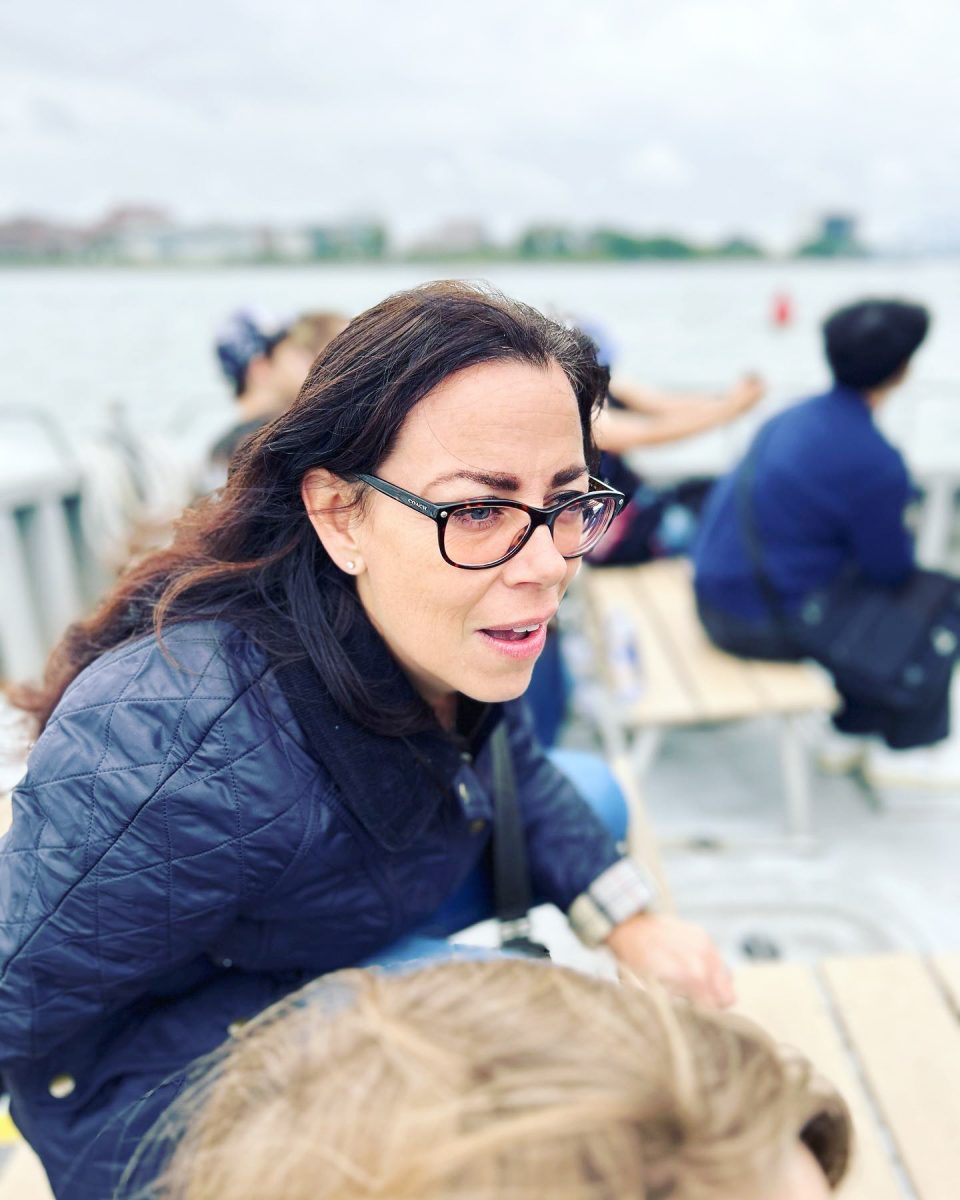Studying at UMass Boston allows students, on any given day, to gaze at the swift water and feel the powerful sea breeze as they look at the ocean extending towards the horizon.
In recent years, members of the College of Liberal Arts and the School for the Environment have been capitalizing on this great benefit and developed classes that enable students to explore their relationship with the ocean. Furthermore, the classes are important, given that most students tend to be unfamiliar with the Harbor Islands and their history.
English department Dean of Faculty Rajini Srikanth, explains in a post on the Humanities for all Website, “we want [students] […] to care enough about the harbor and its islands to want to make sure that the islands aren’t submerged due to sea-level rise, or their communities flooded by 7-foot waves from the Boston harbor,” (2).
The new curriculum is fueled from the Living with the Urban Ocean grant from the National Endowment for Humanities. The NEH is a national entity that awards grants to fund humanities programs across the country.
The NEH website explains, “Because democracy demands wisdom, NEH serves and strengthens our republic by promoting excellence in the humanities and conveying the lessons of history to all Americans,” (1).
The courses—three of which were new and two modified to include instruction about the Boston Harbor islands—address the NEH mission directly.
Two of the new courses are first-year seminars “The Urban Ocean” and “Thompson Island: On the Ground and in the Archives” while the third is an intermediate seminar entitled “Writing and the Environment.” As seminar classes, the new curriculum can be enjoyed by students across the university.
Professor Brittanie Weatherbie-Greco is a senior lecturer in the English department and the instructor of the first-year seminar, “Thompson Island: On the Ground and in the Archives.”
As the name suggests, the course centers around Thompson Island, the nearest island to UMass Boston’s campus, standing three quarters of a mile away. Weatherbie-Greco was the perfect instructor to curate this class, given that she has been part of the English faculty for the past 10 years, often teaching classes in tandem with the archives department and becoming familiar with Thomson Island’s archival collection.
Weatherbie-Greco explains that the course has two main goals: “To help students understand their place here at UMass Boston, living on our water and on our harbor, and to understand their responsibility to the Boston Harbor and the harbor islands.”
During the semester, students take one to two excursions per month. First they explore from afar on the Harbor Walk, then they jump on the university boat, called Columbia Point, and explore the ocean near Thompson Island. Lastly, they take a trip to the island and explore physical space. Alongside this they take excursions to local archives where they explore the island’s history.
Before the fall semester ended, students shared their thoughts about their class as they prepared to submit their last assignment.
“The trips we go on, exploring the island and traveling around the harbor is my favorite,” said Jackie Kuang, a freshman student.
For the last class project, students were tasked with researching a person who lived on Thompson Island and narrating their findings in a podcast. Starting in 1914, the island housed the Farm and Trade School, a place where many orphaned children went, learned a trade and prepared to enter society.
In 1833, the Boston Asylum for Indigent Boys was moved to the island, and in 1835 it merged with the Boston Farm School Society, which was founded in 1814, to become the Boston Asylum and Farm School for Indigent Boys.
Mark O’Neal, a transfer student, focused on Charles H. Bradley. Bradley was the Farm and Trade School superintendent who many of the schoolboys held with high regard. O’Neal shared that his favorite thing about researching Bradley for class was, “discovering history I didn’t even know.”
The opportunity to explore primary source materials was one of the things Weatherbie-Greco was most excited to bring to her students. She noted that original research is often exclusive to students in upper-level courses, so giving the opportunity in a first-year seminar is very special.
Similarly, exploring the archives and going on field trips allows students to explore new methods of learning. Through the semester students get a taste of field work, audio editing, interviewing and researching, and they can reflect on which feels best to them. Weatherbie-Greco noted that providing the opportunity for students to explore how they best learn and work is the most important factor of the first-year seminar.
“The faster you get to know yourself as a learner, the more successful you are going to be in your courses, and it will help you get excited about your major,” Weatherbie-Greco said.
1) https://www.neh.gov/about
2) https://humanitiesforall.org/blog/living-with-the-urban-ocean





















































